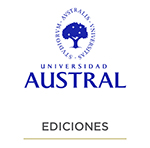Membership in a Criminal Organization: Offender-Based Criminal Law in Peru and Act-Based Criminal Law in Argentina?
Abstract
When we speak of membership in a criminal organization, that label gives the impression that we are dealing with the punishment of a mere state or status and, therefore, that this criminal offense does not, prima facie, concern the legal-criminal category of action, but rather the category of legally relevant states. A sector of Argentine scholars, in this sense, has considered that membership cannot be interpreted as “mere association”, “integration” or “being there”, but as “taking part.” Otherwise—following this reasoning—a mere internal tendency of the offender would be punished. If this interpretation were correct, however, the Peruvian criminal definition of membership in a criminal organization would have to be considered unconstitutional, since, by limiting itself to the punishment of those who “join”—in the sense of “being a member of”— a criminal organization, it would be criminalizing a mere internal tendency and, thus, violating the principle of the act. In this context, this research is based on the assumption that, beyond the legal formulation of the criminal offense, it is necessary to answer a question that, although fundamental, is generally neglected: what does it mean, in the context of the dynamics of today’s society, to belong to or be a member of a criminal organization? Only by answering this question will it be possible to establish satisfactory premises in the legal-criminal field.
Downloads
References
Abels, Heinz (2019). Einführung in die Soziologie. Tomo II: Die Individuen in ihrer Gesellschaft (5a ed.). Springer VS.
Arnold-Cathalifaud, M. (2008). Las organizaciones desde la teoría de los sistemas sociopoiéticos. Cinta Moebio. Revista de Epistemología de Ciencias Sociales, 32, 90-108. https://cintademoebio.uchile.cl/index.php/CDM/article/view/25911.
Cadenas, H. (2012). La desigualdad de la sociedad. Diferenciación y desigualdad en la sociedad moderna. Persona y sociedad, 26(2), 51-77. https://doi.org/10.53689/pys.v26i2.16.
Cadenas, H. (2014). Organizaciones y grupos: loose coupling/strict coupling. En Arnold, M., Cadenas, H. y Urquiza, A. (Ed.), La organización de las organizaciones sociales: Aplicaciones desde perspectivas sistémicas (pp. 153-170). RIL Editores.
Cancio Meliá, M. (2010). El delito de pertenencia a una organización terrorista en el Código Penal español. Revista de estudios de la justicia, (12), 149-165. https://doi.org/10.5354/0718-4735.2010.15233.
Candida, F. (2018). Rituale in Gangs und kriminellen Vereinigungen. En Frey, D. (Ed.), Psychologie der Rituale und Bräuche (pp. 333-342). Springer.
Coser, L. A. (2015). Gierige Institutionen. Suhrkamp Verlag.
De Campo, M. E. (2014). Neue Medien – Alte Greedy Institutions. Leviathan, 42(1), 7-28. https://doi.org/10.5771/0340-0425-2014-1.
Dorn, C. (2011). Kriminelle Organisationen und Gesellschaft: ein Vergleich von Neo-Institutionalismus und Systemtheorie (Tesis de pregado). Facultad de Sociología, Universität Bielefeld, Bielefeld. https://www.uni-bielefeld.de/fakultaeten/soziologie/fakultaet/arbeitsbereiche/ab3/pdf/DA-Dorn-Endfassung2.pdf.
Eckstein, K. (2005). Grundlagen und aktuelle Probleme der Besitzdelikte - EDV, EU, Strafrechtsänderungsgesetze, Konkurrenzen. Zeitschrift für die gesamte Strafrechtswissenschaft, (117), 7-142.
Eschelbach, R. (2023). § 129. En Kindhäuser, U., Neumann, U., Paeffgen, H. U. y Saliger, F. (Ed.), Strafgesetzbuch. Nomos Kommentar (pp. 809-842), Nomos.
Franken, S. (2010). Verhaltensorientierte Führung. Handeln, Lernen und Diversity in Unternehmen (3a ed.). Springer Gabler.
García Cavero, P. (2012). Derecho Penal. Parte General (2a ed.). Jurista Editores.
Goffman, E. (2001). Internados. Ensayos sobre la situación mental de los enfermos mentales (1a ed.). Amorrortu.
Jakobs, G. (1997). Derecho Penal. Parte General. Fundamentos y teoría de la imputación (2a ed.). Marcial Pons.
Jakobs, G. (2006). Feindstrafrecht? – Eine Untersuchung zu den Bedingungen von Rechtlichkeit. Onlinezeitschrift für höchstrichterliche Rechtsprechung im Strafrecht, 8-9, 289-297.
Jakobs, G. (2002). Consumación material en los delitos contra la persona. Al mismo tiempo, una contribución a la generalización de la parte especial. Revista Electrónica de Ciencia Penal y Criminología, 04-13, 13:01-13:18. http://criminet.ugr.es/recpc/recpc04-13.pdf.
Jakobs, G. (2003). Sobre la normativización de la dogmática jurídico-penal. Civitas.
Jakobs, G. (2023). Der Kern des Strafrechts und sein Rand. Überlegungen zum Feindstrafrecht. Manuskript.
Kühl, S. (2011a). Organisationen. Eine sehr kurze Einführung. Vs Verlag Fur Sozialwissenschaften.
Kühl, S. (2011b). Mitgliedschaft - das magische Mittel zur Herstellung von Konformität in Organisationen. En Bucher, B., Thomann, G., Kuhn, R. y Hagmann, T. (Ed.), Loyalität. Resonanz - Gestalten von Organisationen in flüchtigen Zeiten (Tomo II, pp. 48-68). Hep Verlag.
Kühl, S. (2014). Gruppen, Organisationen, Familien und Bewegungen. Zur Sociologie mitgliedschaftsbasierter Systeme zwischen Interaktion und Gesellschaft. Zeitschrift für Soziologie (Sonderheft Interaktion - Organisation - Gesellschaft revisited), 65-85. https://pub.uni-bielefeld.de/record/2711857.
Kühl, S. (2021). Gruppe - Eine systemtheoretische Bestimmung. Kölner Zeitschrift für Soziologie und Sozialpsychologie, (73), 25-28.
Kühl, S. (2022). Zur Gruppenförmigkeit terroristischer Zusammenschlüsse. En Rothenberger, L., Krause, J., Jost, J. y Frankenthalt, K. (Ed.), Terrorismusforschung (Vol. III, pp. 121-134). Nomos.
Kuntze, J. (2013). Bürgerliche Mitgliedschaft in Religionsgemeinschaften. Studie über die Rechtsbeziehungen der Mitglieder zu den römisch-katholischen, evangelischen, jüdischen und islamischen Religionsgemeinschaften in Deutschland (Vol. IV). Universitätsverlag Göttingen.
Labraña, J., Pérez-Solari, F., Rivera, F. y Campos, E. (2012). Sistemas funcionales, organizaciones y membrecía: paradojas sobre la inclusión organización/sistema parcial en Chile. Revista del Magíster en Análisis Sistémico Aplicado a la Sociedad, 27, 53-66. https://doi.org/10.5354/0718-0527.2012.22307.
Lampe, E. J. (2001). Rezension zu Eckstein, Besitz als Straftat. Zeitschrift für die gesamte Strafrechtswissenschaft, (113), 885-896.
Lange, S. (2019). Provokante Kommunikation: Strategien im politischen Umgang mit transnationalem Terrorismus. Transcript Verlag.
Lesch, H. (2016). El concepto de delito. Las ideas fundamentales de una revisión funcional (1a ed.). Marcial Pons.
Luhmann, N. (1997b). Die Gesellschaft der Gesellschaft (Tomo II). Suhrkamp Verlag.
Luhmann, N. (1999a). Funktionen und Folgen formaler Organisation (5a ed.). Duncker & Humblot.
Luhmann, N. (2000). Organisation und Entscheidung. Westdeutscher Verlag.
Mañalich, J. P. (2011). Organización Delictiva. Bases para su elaboración dogmática en el Derecho Penal chileno. Revista Chilena de Derecho, 38(2), 279-310.
Mañalich, J. P. (2014). Norma, causalidad y acción. Una teoría de las normas para la dogmática de los delitos de resultado puros. Marcial Pons.
Mañalich, J. P. (2020). Estudios sobre la Parte Especial del Derecho Penal chileno. Thomson Reuters.
Márquez Cisneros, R. (2023). La pertenencia a una organización criminal. Análisis sobre su compatibilidad con el principio de lesividad. BdeF.
Meini, I. (2009). La autoría mediata por dominio de la organización en el caso Fujimori. Comentario a la sentencia de fecha 7.4.2009 (Exp. a.v. 19-2001) emitida por la Sala Penal Especial de la Corte Suprema. Zeitschrift für Internationale Strafrechtsdogmatik, 11, 603-608.
Neumann, F. (2020). Vormoderne Organisationen. Mitgliedschaft und „formale Organisation in der sächsischen Bergverwaltung des 16. Jahrhunderts. Zeitschrift für Historische Forschung, (47), 591-628.
Pastor Muñoz, N. (2005). Los delitos de posesión y los delitos de estatus: Una aproximación político-criminal y dogmática. Atelier.
Pastor Muñoz, N. (2006). Besitz- und Statusdelikte: eine kriminalpolitische und dogmatische Annäherung. Goltdammer's Archiv für Strafrecht, 153, 793-806.
Pastor Muñoz, N. (2016). Aproximación a los delitos de posesión y a los delitos de pertenencia. En Schroeder, F. C., Eckstein, K. y Falcone, A. (Ed.), Delitos de posesión o tenencia. Estudios de Derecho penal, partes General y Especial, y de Derecho Procesal Penal (pp. 189-208). Ad-hoc.
Paul, A. y Schwalb, B. (2012). Kriminelle Organisationen. En Apelt, M. y Tacke, V. (Ed.), Handbuch Organisationstypen (pp. 327-344). VS Verlag für Sozialwissenschaften.
Perdomo, J. y Parra, W. (2021). Las organizaciones criminales. Sistemas de injusto autónomo. Universidad Externado de Colombia.
Petzsche, A. (2019). Die Kriminalisierung von Vorbereitungshandlungen – Abschied vom Tatstrafrecht? Zeitschrift für die gesamte Strafrechtswissenschaft, 131(3), 576-594.
Polaino-Orts, M. (2011). Verdades y mentiras en el Derecho penal del enemigo. Revista de la Facultad de Derecho y Ciencias Sociales y Políticas, 5(9), Editorial Dunken.
Polaino-Orts, M. (2016). Delitos de posesión como Derecho penal del enemigo. En Schroeder, F. C., Eckstein, K. y Falcone, A. (Ed.), Delitos de posesión o tenencia. Estudios de Derecho penal, partes General y Especial, y de Derecho Procesal Penal (pp. 189-208). Ad-hoc.
Rodríguez Mansilla, D. (2008). Gestión Organizacional. Elementos para su estudio. Ediciones Universidad Católica de Chile.
Roxin, C. y Greco, L. (2020). Strafrecht, Allgemeiner Teil. Tomo I: Grundlagen. Der Aufbau der Verbrechenslehre. C. H. Beck.
Sahui Maldonado, J. A., Pérez Canul, C. A. y Patrón Cortés, R. M. (2015). Consideraciones en torno a la paradoja de la racionalidad en las organizaciones. Revista Electrónica sobre Tecnología, Educación y Sociedad, 2(3). https://www.ctes.org.mx/index.php/ctes/article/view/101.
Schroeder, F. C. (2007). Besitz als Straftat. Zeitschrift für Internationale Strafrechtsdogmatik, 11, 444-449.
Schimank, U. (2001). Funktionale Differenzierung, Durchorganisierung und Integration der modernen Gesellschaft. En Tacke, V. (Ed.), Organisation und gesellschaftliche Differenzierung (pp. 19-38). Westdeutscher Verlag.
Schwarting, R. (2020). Organisationsbildung und gesellschaftliche Differenzierung. Empirische Einsichten und theoretische Perspektiven. Springer.
Sponsel, R. (2020). Mitglied und Gruppe. En Feltes, T. y Rauls, F. (Ed.), Der Kampf gegen Rocker: der “administrative Ansatz” und seine rechtsstaatlichen Grenzen (Tomo XII, pp. 127-148).Verlag für Polizeiwissenschaft.
Stein, U. y Greco, L. (2019). § 129. En Deiters, M., Hoyer, A., Jäger, C., Rogall, K., Schall, H., Sinn, A., Stein, U., Wolter, J., Wolters, G. y Zöller, M. (Ed.), Systematischer Kommentar zum Strafgesetzbuch (ap. 1-69). Carl Heymanns Verlag.
Stichweh, R. (2009). Leitgesichtspunkte einer Soziologie der Inklusion und Exklusion. En Stichweh, R. y Windolf, P. (Ed.), Inklusion und Exklusion: Analysen zur Sozialstruktur und sozialen Ungleichheit (pp. 29-42). VS Verlag für Sozialwissenschaften.
Thommen, M., Pajarola, U. y Oehen, M. (2018). Kriminelle Organisation, Kommentar zu Art. 260ter StGB. En Ackermann, J. B. (Ed.), Kommentar Kriminelles Vermögen, kriminelle Organisationen - Einziehung, kriminelle Organisation, Finanzierung desTerrorismus, Geldwäscherei (pp. 1-349). Schulthess Verlag.
Weber, M. (2002). Voluntary Associational Life (Vereinswesen). Max Weber Studies, II(2), 199-209).
Weick, K. E. (1985). Der Prozeß des Organisierens. Suhrkamp Verlag.
Yacobucci, G. (2014). El sentido de los principios penales. BdeF.
Ziffer, P. (2005). El delito de asociación ilícita (1a ed.). Ad-Hoc.
Ziffer, P. (2008). El delito de asociación ilícita frente al “Derecho penal en expansión”. En Cancio Meliá, M. y Pozuelo Pérez, L. (Ed.), Política criminal en vanguardia: inmigración clandestina, terrorismo, criminalidad organizada (pp. 495-515). Thomson Reuters-Civitas.
Copyright (c) 2024 Carlos Alberto Pinedo Sandoval

This work is licensed under a Creative Commons Attribution-NonCommercial-NoDerivatives 4.0 International License.
This license allows the copy, distribution, exhibition and representation of the work provided authorship is acknowledged and the work is properly quoted. Commercial use of the original work or the generation of derived works are not allowed.
The authors hereby guarantee the right to the first publication of the work to the Revista Jurídica Austral.
















































